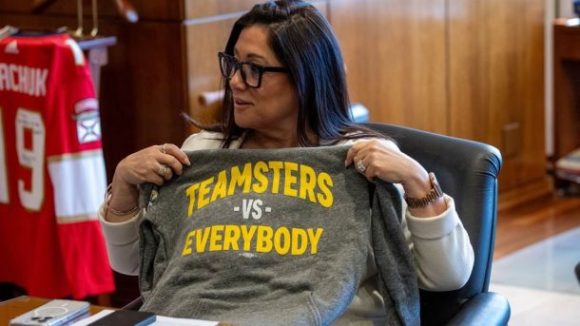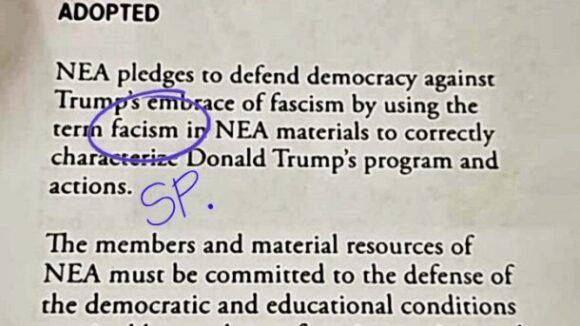Department of Labor vs. Dues-Paying Workers
Sadly, U.S Department of Labor (DOL) Sec. Lori Chavez-DeRemer continues to cozy up to union bosses. The DOL’s current bid to…

The Washington Post’s Marc Thiessen is challenged by SEIU and Theissen responded:
The first rule of holes: when you are in one, stop digging.
This truth is lost on Jon Youngdahl, national political director of the Service Employees International Union. He digs the SEIU into an even deeper hole with his letter to the editor challenging my column on whether unions like his are funding their political activities with contributionsfrom foreign and illegal workers. Youngdahl writes:
“Most of the political work of the Service Employees International Union is funded by about 300,000 janitors, nurses’ aides, child-care providers and other members who voluntarily contribute on average $7 per month to SEIU’s Committee on Political Education (COPE). To be eligible to contribute to COPE, you must be a U.S. citizen or permanent legal resident.”
Most? Not even close. In May 2009, the Wall Street Journal reported that SEIU officials bragged they had spent $85 million during the 2008 campaign season, making them the the single biggest contributor to either party in the last election cycle.
Yet according to the Federal Election Commission, the SEIU’s COPE fund had total expendituresof just $40.9 million during the 2007-2008 campaign. Hmm. Where did the other $44.1 million come from? It appears that “most” of the SEIU’s political expenditures came from sources other than COPE.
… Money the union spends on political activities outside of COPE must come from the union’s general treasury — the same general treasury that collects funds from foreign and illegal workers. Youngdahl does not answer the question posed in my column: Does the SEIU keep track of how many illegal immigrants it has on its union rolls? How much money from these illegal workers (who are by definition foreign nationals) goes toward the tens of millions of dollars the union spends on political activities?
And even these figures don’t account for all SEIU political spending. According to the National Right to Work Committee, mailing and phone banking to union members is considered “member communication,” not political activity — even if the sole purpose of that communication is to get out the vote for the union’s chosen candidate. How does the SEIU pay for such “member communication,” and do foreign or illegal workers contribute to these obviously political expenses? And this is just the tip of the iceberg.
If the SEIU does not like such questions, it can thank President Obama. It was the president and his allies who opened the door to this line of inquiry. I contacted the SEIU before publishing my column to get them to provide some answers, but they did not reply. Perhaps they will answer when congressional investigators come calling next year.

Sadly, U.S Department of Labor (DOL) Sec. Lori Chavez-DeRemer continues to cozy up to union bosses. The DOL’s current bid to…

Business Item 60, vowing that the NEA would use the word “facism” whenever communicating about policies favored by the President and his many supporters, was just one of several highly controversial 2025 NEA resolutions.

Josh Hawley, who in 2018 promised freedom-loving Missourians to support Right to Work, is now sponsoring legislation to make it even easier for Big Labor to force employees to pay union dues, or be fired